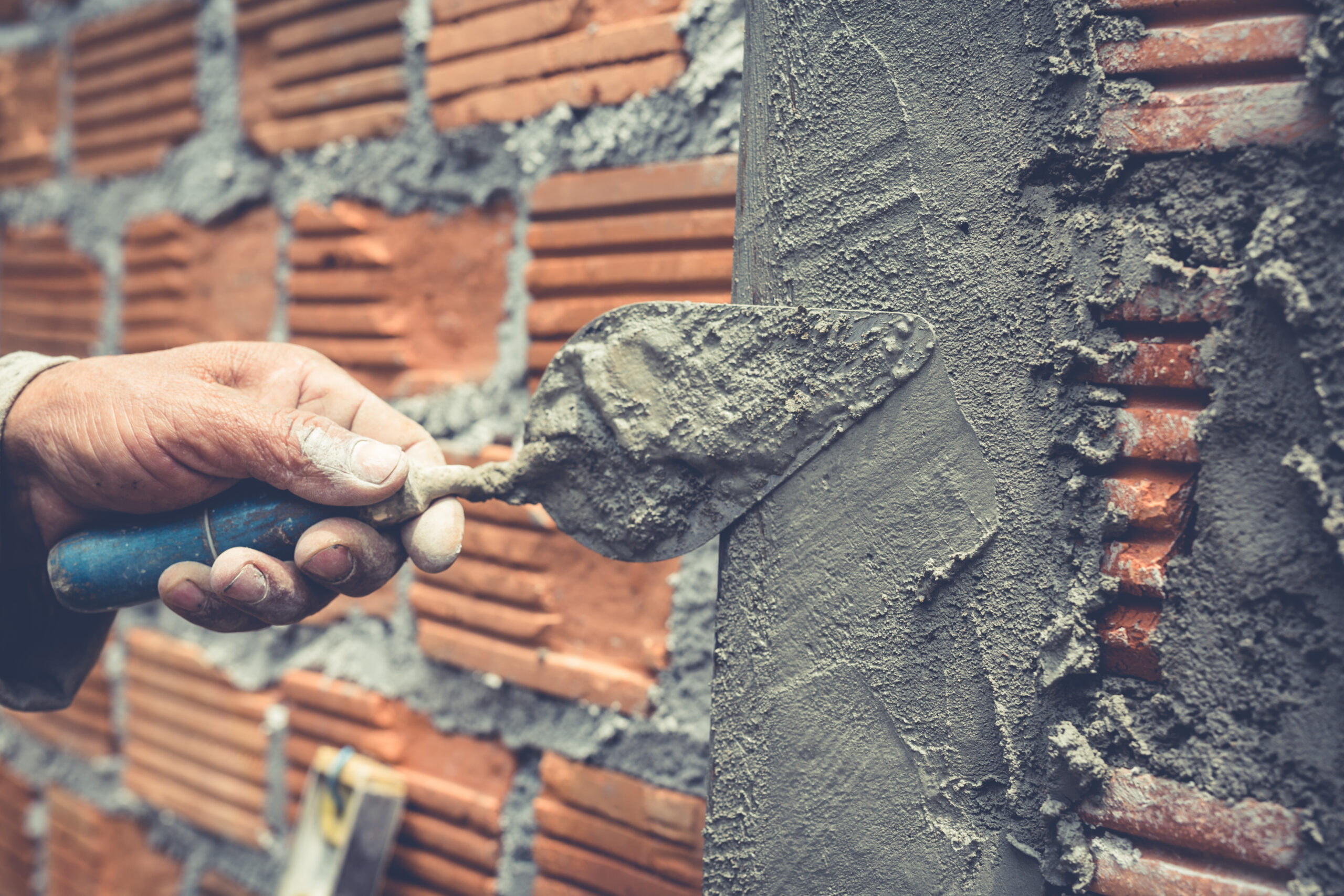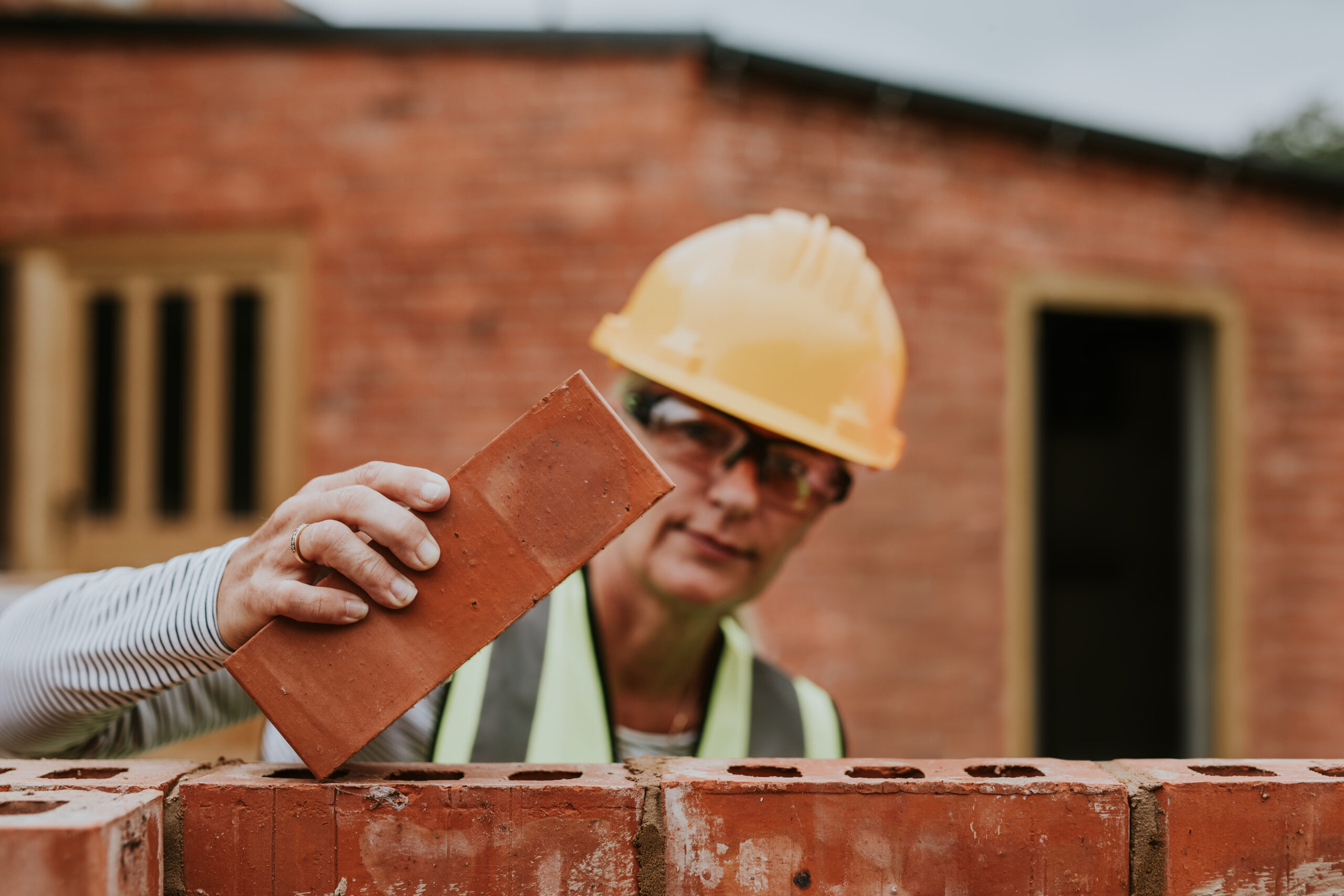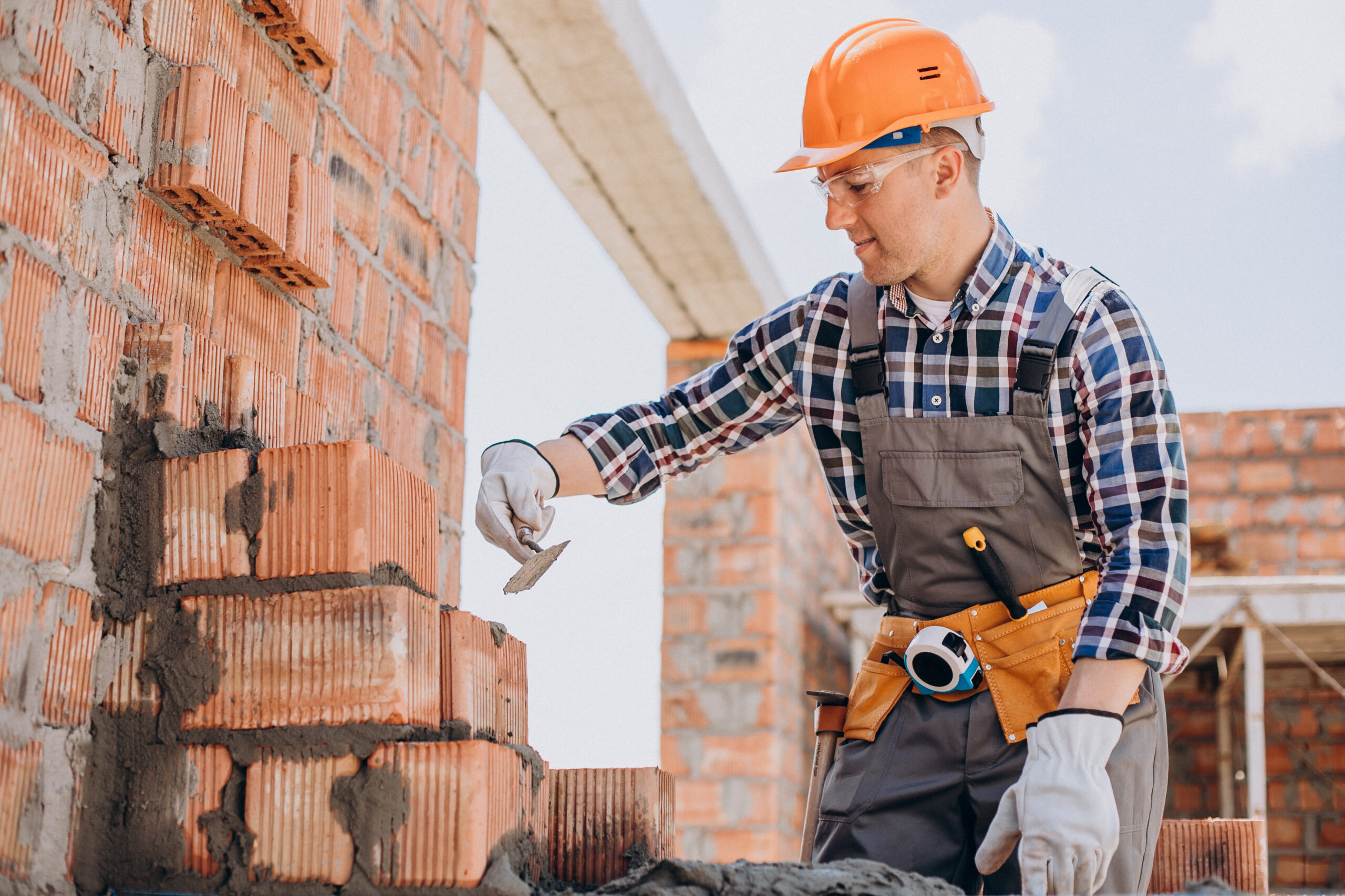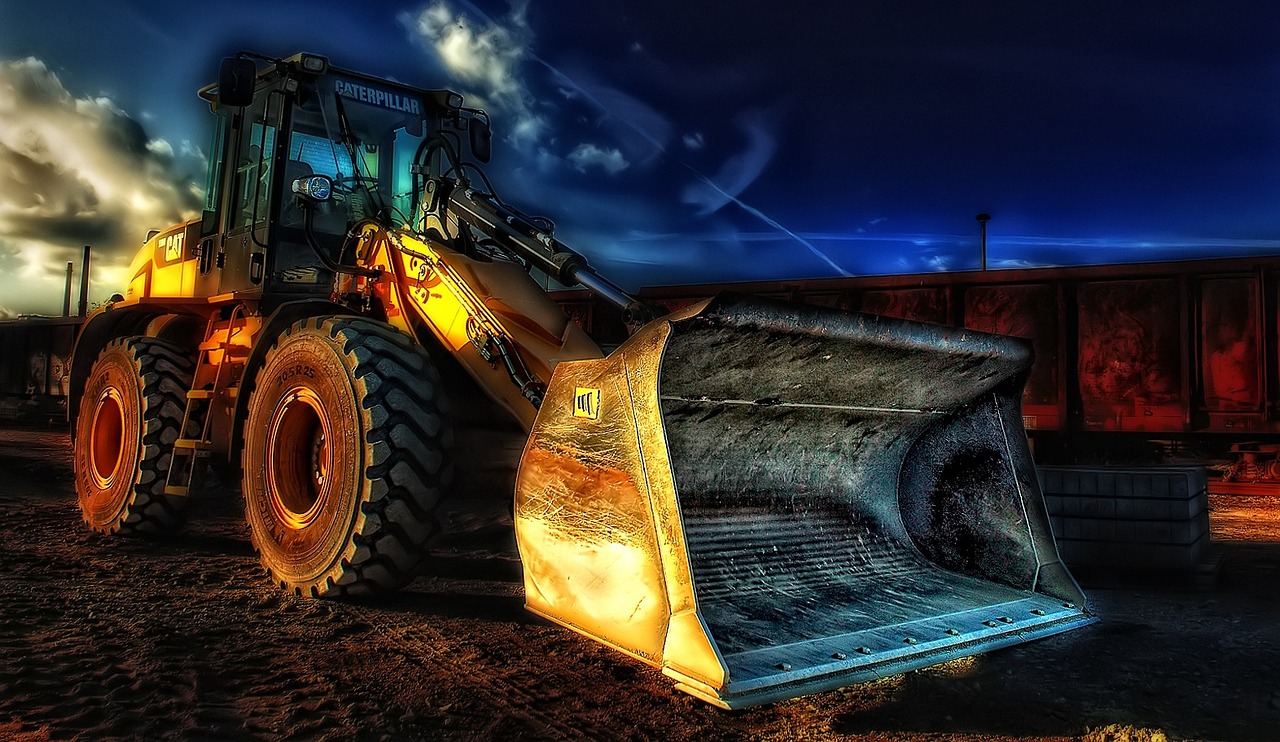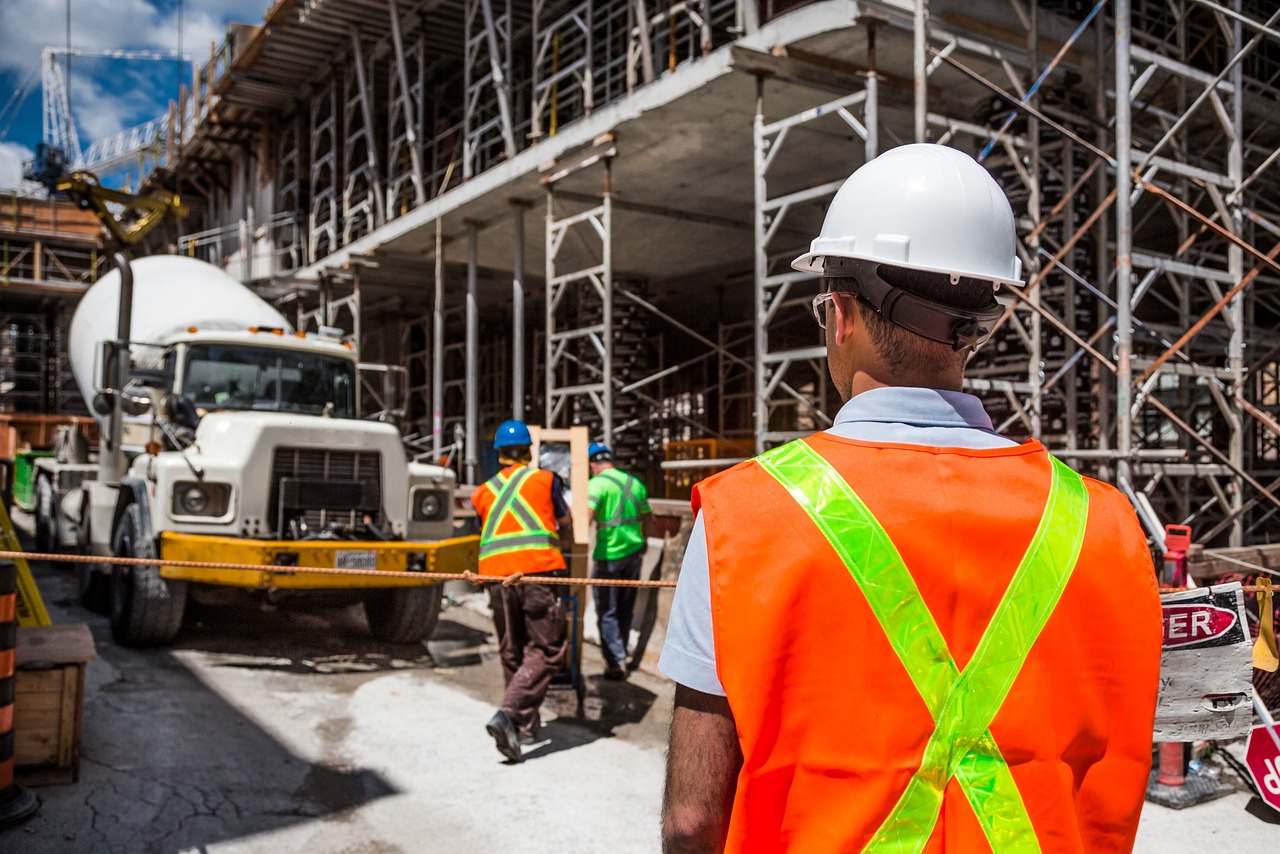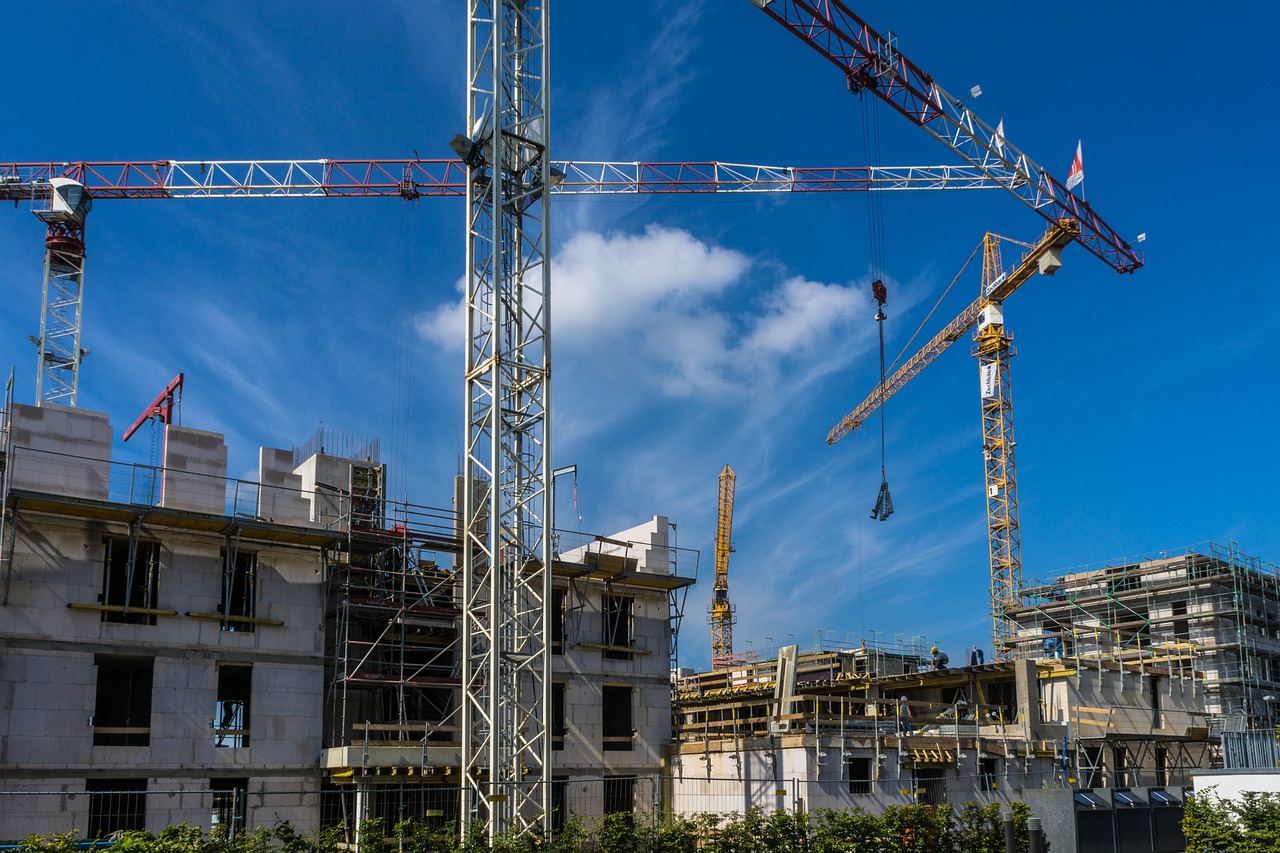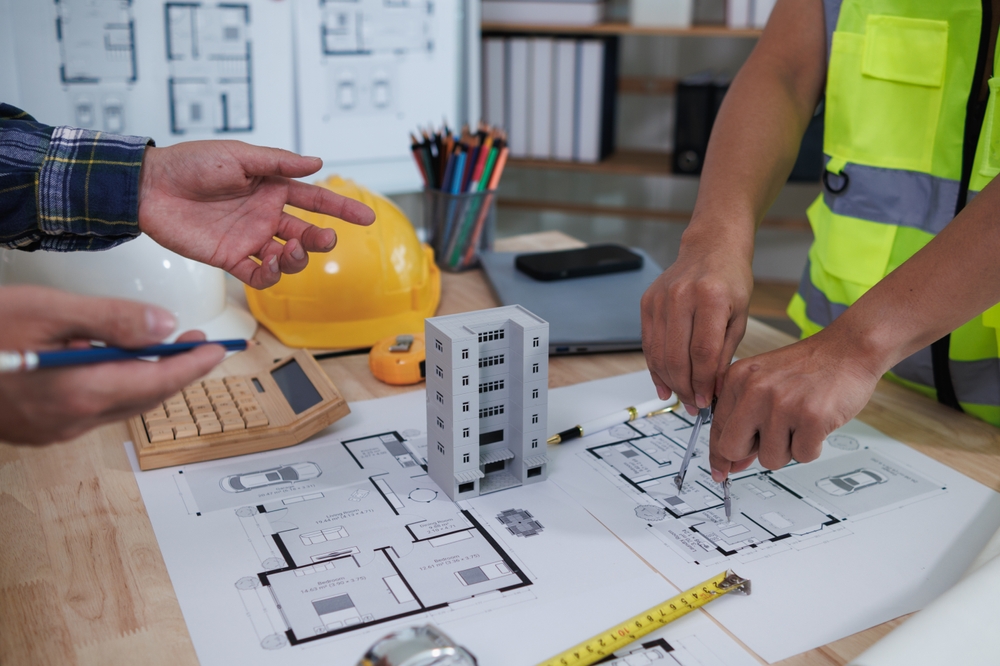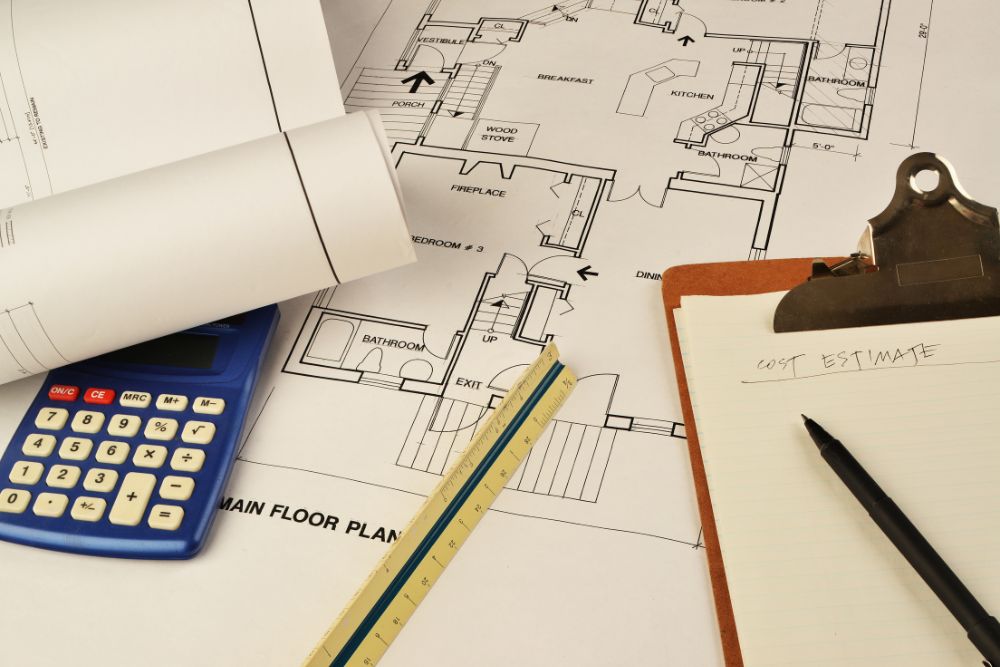Masonry is a significant part of construction, whether erecting solid walls, restoring a chimney, or creating decorative stonework. Homeowners always ask: How much does masonry work cost per hour? It requires skill and the appropriate equipment.
In the U.S., the price is typically between $50 and $120 per hour. Handymen can be cheaper, and complicated jobs, such as foundation or stone repairs, can be more expensive. In addition to labor, it can have additional costs of materials, permits, and cleanup.
Being familiar with these expenses initially and hiring professional masonry estimating services will allow you to think over your budget more efficiently and prevent unexpected expenses. This guide will inform you whether your project will require a professional mason or whether a handyman can be hired to do the job.
What Is Masonry Work?
Masonry work involves constructing or repairing buildings using bricks, stones, blocks, or concrete. Masons use mortar to join these together to form long-lasting and to
ugh walls, floors, or other structures. Here are masonry work types :1. Bricklaying
Bricklaying is the process of building or repairing brick buildings, including walls, chimneys, and fireplaces. Bricks are placed evenly to ensure the building is strong and stable.
2. Stonework
Stonework is an art that uses stones (artificial or natural) in decorative and structural design. This can be garden walls, walkways, foundations, or ornate design features. Stonework is usually used because of its beauty and sturdiness.
3. Concrete Work
Constructing concrete-based solid structures such as patios, driveways, porches, slabs, and foundations. It is durable, heavy, and reliable.
4. Masonry Repair
Fixing old or damaged brick, stone, or concrete. It involves replacing broken pieces, repairing mortar joints, and strengthening weak areas to make buildings last longer.
Based on the most current U.S. market data, here is the updated table for masonry work costs:
Type of Masonry Work | Cost per hour($) | Estimated Total Cost($) |
Bricklaying | 70-110 | 2,000-9,000 |
Chimney Repair/ Restoration | 50-150 | 1,000-7,000+ |
Patio Installation (Stone /Brick) | 50-80 | 2,500-15,000+ |
Masonry Repair | 50-100 | 500-2,500+ |
Concrete Work (Slabs, Patios) | 40-80 | 1,500-10,000+ |
Stone Masonry | 60-100 | 3,000-9,000+ |
Factors Affecting Masonry Work Costs Per Hour
The rate per hour of masonry work in the U.S. can be quite different based on the place of residence, nature of the project, and contractor. The key factors that have an impact on the cost are enumerated below:
1. Type of Masonry Work
The type of masonry work affects the cost. Replacing a few bricks is quick and inexpensive, but tuckpointing, complex stonework, or detailed masonry requires more time and skill, which raises the hourly rate.
2. Experience Level
Experience is another factor that influences the prices charged by a mason. Masons who are highly skilled and have years of experience tend to charge higher, still they are more efficient and they provide results that are long lasting. The average wage range in the U.S. is between 40-100/hour with more complex jobs usually demanding professionalism.
3. Place and Project Complexity
Location does matter when it comes to prices. In big cities, it can cost 20-30% more per hour than it does in smaller towns or the countryside. The complexity of the project is also a factor.
4. Material Costs and Availability
The price also depends on the type of materials used. The usual red bricks are cheap, whereas decorated or specialty bricks and natural stone may cost significantly more. When some materials cannot be located locally and must be obtained elsewhere, this will increase the overall project price, too.
5. Permits and Regulations
Some masonry work needs permits, usually $100–$250. Following local rules and safety standards can also raise the hourly cost.
Additional Costs to Consider
It is not only about the workforce and cost of materials when you plan your budget for masonry work. The additional expenses include:
- Tools and Equipment Rentals: Masonry may also need special instruments such as scaffolding, mixers, or lifts. In cases where the contractor does not own such tools, the contractor might need to employ them, hence the cost will rise by about 5%.
- Cleanup and Waste Disposal: Remove old bricks, mortar, and debris from the site. When the waste is large, renting a dumpster can be hired, which increases the expense. Small projects require additional labor costs to clean up.
- Travel and Transportation: Moving material, tools, and equipment to/from one location to another is also an expense. Transportation expenses will raise your budget by approximately 5%.
How Much Does Masonry Work Cost Per Hour?
It is worth knowing the conventional prices before you start thinking about your masonry project. Prices may vary according to labor, materials, permits, and repair or building types. Below is a breakdown of the simple average rates:
Factor / Task | Typical Rate / Cost |
Masonry Labor | $50 – $120 per hour |
Material | Depends on quality and availability |
Permits / Inspections | $100 – $250 |
Foundation Repairs | $250 – $800 per crack, or $70 – $120 per hour |
Repointing / Tuckpointing | $50 – $75 per hour, or $8 – $20+ per sq. ft. |
Porch / Wall Repairs | $10-$30 per sq. ft., / $65-$100 per hour |
How To Calculate Masonry Work
You need to know about bricks, mortar, and other required materials before commencing any masonry project. Here are the details:
Calculation Step / Parameter | Simple Description | Typical Value or Ratio |
Volume of Brick Masonry | Wall thickness × depth × length | in cubic meters (m³) |
Brick Volume | Brick length × brick width × brick height | e.g. ~0.0017-0.0025 m³ (depends brick size) |
Number of Bricks | (Volume of masonry) ÷ (Volume of one brick) | gives how many bricks are needed |
Mortar Volume | Volume of masonry – brick volume | This is how much mortar you need |
Mortar Mix Ratio | How much cement is added to sand in the mortar | Ratios: 1:3, 1:4 |
Dry Mortar Volume Increase | Account for shrinkage/voids | Add about 25% extra to the wet mortar volume |
Cement Density Conversion | To convert volume to weight | ~1,500 kg per m³ |
Cement Bag Volume | One volume bag of cement occupies | ~0.035 m³ per bag |
Hourly vs. Project-Based Pricing
Contractors can pay on an hourly basis or provide a price on a project-based basis when employing to carry out masonry work. This is just a simple comparison that would help you realize what option could be suitable in your project.
Pricing Method | How It Works | Pros | Cons |
Hourly Pricing | You pay for the time spent (e.g., $40–$100 per hour) | Suitable for small or uncertain jobs, flexible if work changes | Hard to predict total cost, can get expensive if work takes longer |
Project-Based Pricing | You pay a fixed price for the whole project | Easier to budget, no surprises, suitable for large jobs | Less flexible if changes are needed, may cost more upfront |
Skilled Mason vs. Handyman Hourly Rates: Key Things to Know
When choosing between a skilled mason and a handyman, it’s important to understand their hourly rates and how they best suit:
Worker Type | Hourly Rate | Best For | Things to Know |
Skilled Mason | $50 – $100/hour | Detailed work, stone designs, brick restoration, large projects | Works faster, cleaner, and ensures long-lasting results |
Handyman / Less Skilled Worker | $30 – $50/hour | Small or simple jobs | It may take longer, and the work might not be as polished |
Tips to Save Money on Masonry Work
Masonry projects are not cheap and through proper strategy you can save money without compromising quality. Here are some practical ways:
- Plan Periodic Maintenance: Small problems, such as repairing the point or replacing defective mortar, will be fixed early to prevent major and more costly repairs in the future.
- Use Local Contractors: Local masons will minimize transportation and delivery expenses. They also know the area’s building requirements and codes.
- Make the Design Simple: Complex brick or stone designs require additional time, labor, and resources. The more basic designs decrease the cost of labor and materials.
- Purchase Materials in Bulk: Bricks, stones, or cement may be bought in bulk, and discounts are normally provided, which reduce the overall price.
- Compare Quotes: It is always advisable to obtain estimates from several masons.
- Reuse Materials Where Possible: Reusing old materials to save money.
- Schedule Off-Season Work: Some contractors provide cheaper rates during the less busy times. Scheduling your project then can reduce labor costs.
FAQs
What Are Some Signs That Masonry Repair Is Needed?
Masonry repair may be required when you notice cracks in walls and loose bricks, crumbling mortar, water leaks, and bulging parts. It is also a warning when moisture is staining or when bricks are falling apart. Early repairs help to eliminate the damage and expensive repairs in the future.
How Do You Quote A Masonry Job?
In a quote, you must measure the work area, estimate the quantity of stones and bricks to be used, add mortar, labor time and other miscellaneous costs like permits or cleanup. Project size and design also determine the price. A definite quote can avoid a shock.
How To Do A Masonry Estimate?
First, calculate the total wall size (length × height × thickness). Then, work out the number of bricks or blocks and the mortar needed. Add costs for labor, materials, and equipment. This gives you a fair idea of how much the project will cost.
What Are The Four Golden Rules Of Bricklaying?
The four golden rules are:
- Bricks should be up straight and level.
- The mortar thickness should be the same
- Do not have the joints lined up.
- Clean off extra mortar quickly.
Which Are the Most Common Masonry Unit Types?
Stones, concrete blocks, and bricks are the most frequently used. Walls and chimneys are done with bricks, foundations and significant buildings are done with blocks, and strength and decoration are done with stones. It is determined by the nature of the project and design.
Final Thoughts
Masonry strengthens and beautifies your property. Costs for bricklaying, stonework, chimney repair, or concrete work depend on labor, materials, and project complexity. Considering factors like location, permits, and material choices helps you stay within budget.
To save money, compare quotes, hire experienced professionals, and keep designs simple. Regular maintenance also prevents costly repairs and maintains structures that last longer.
If you’re planning a masonry project and want to know how much does masonry work cost per hour, Prime Estimation offers expert masonry estimating services to help you budget smartly and avoid surprises.
Contact us today to get started with a reliable estimate for your project!

